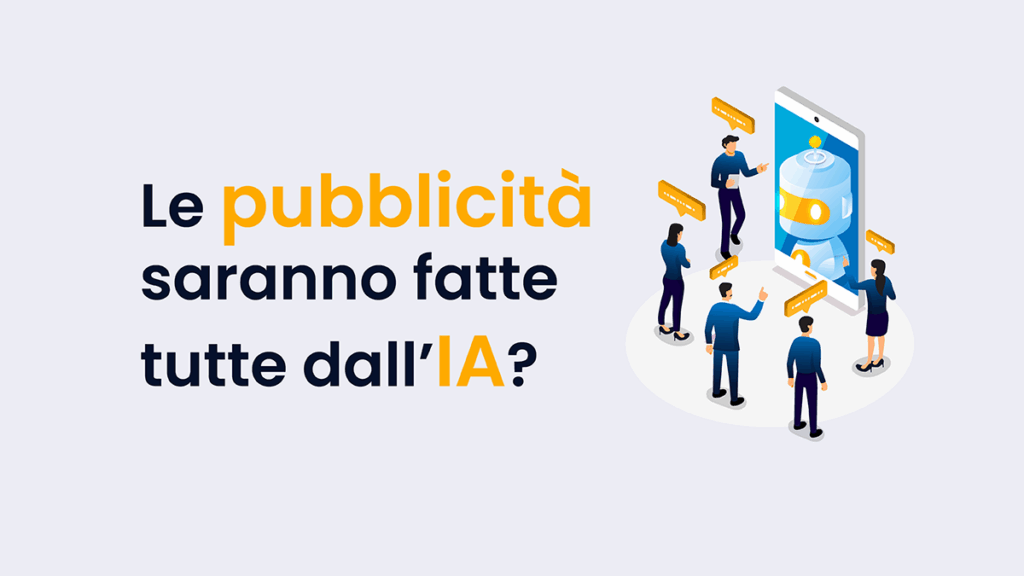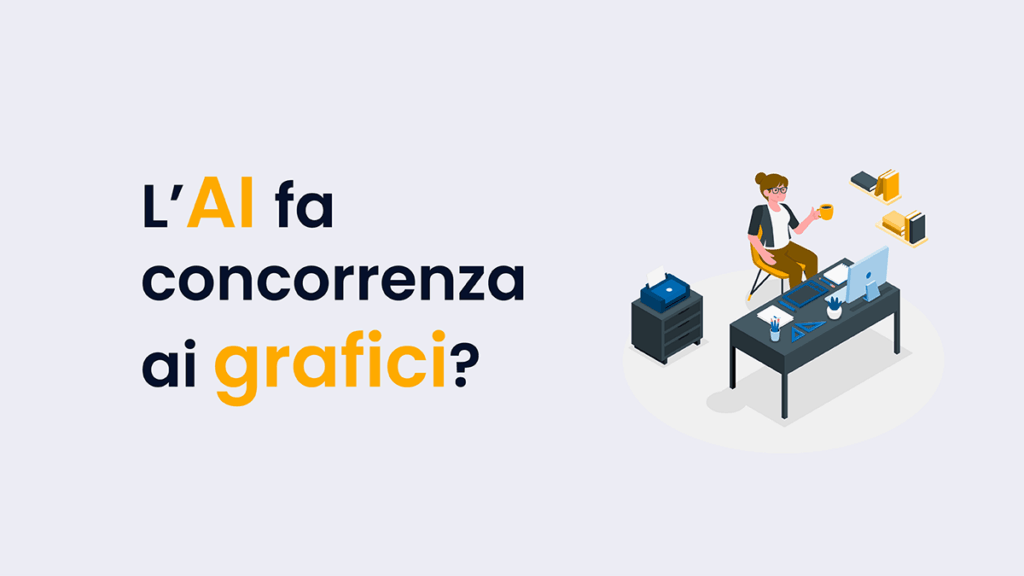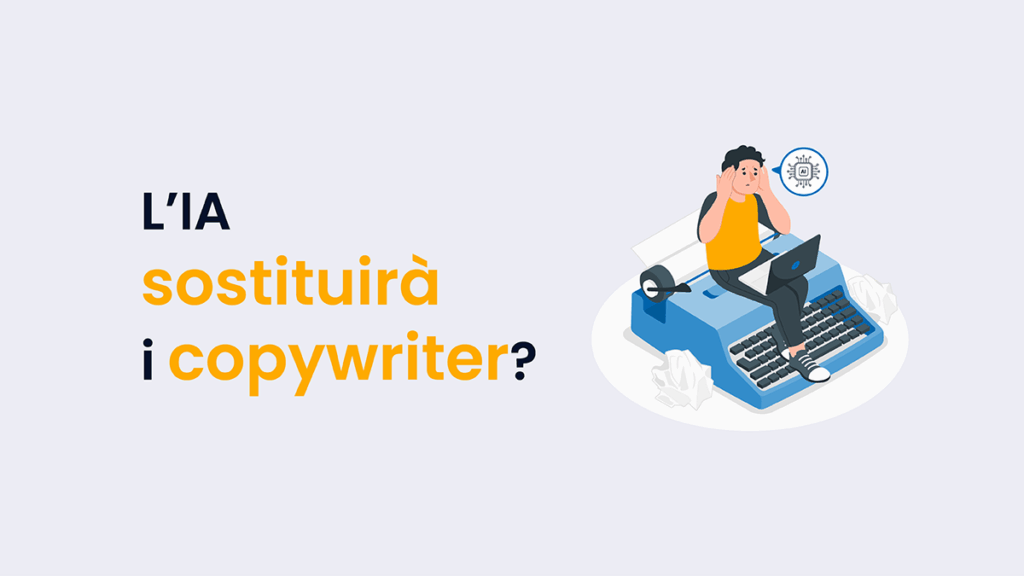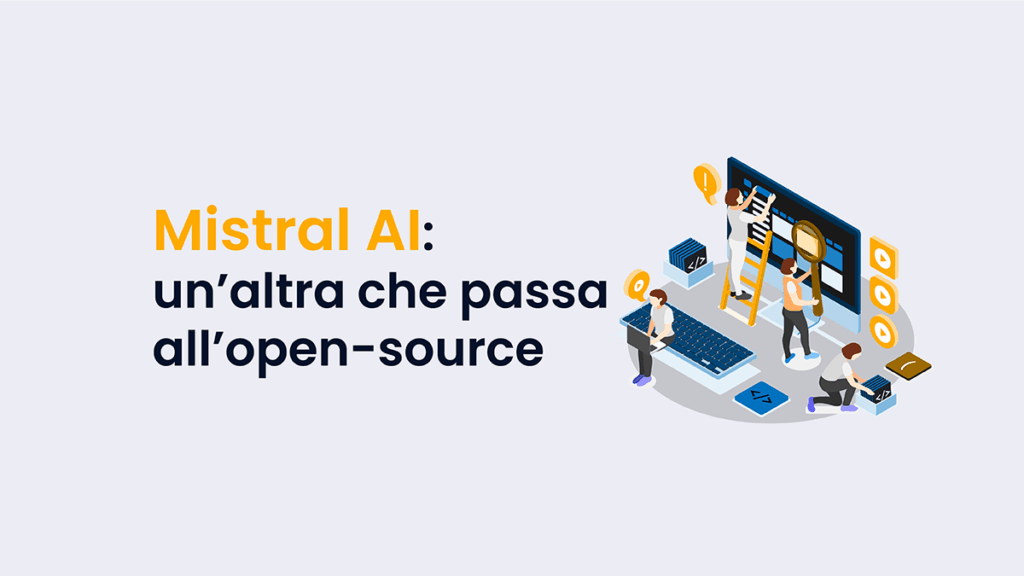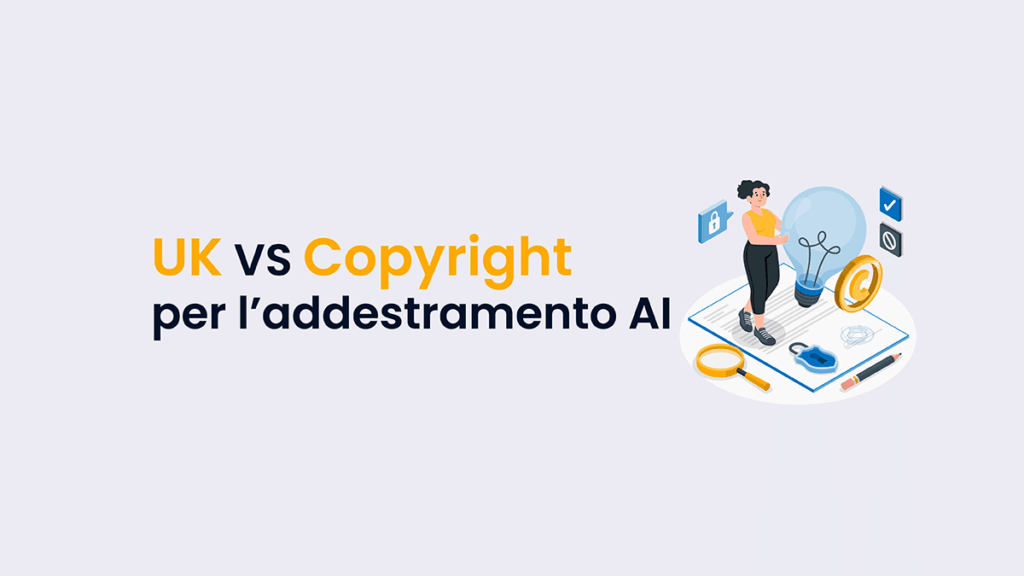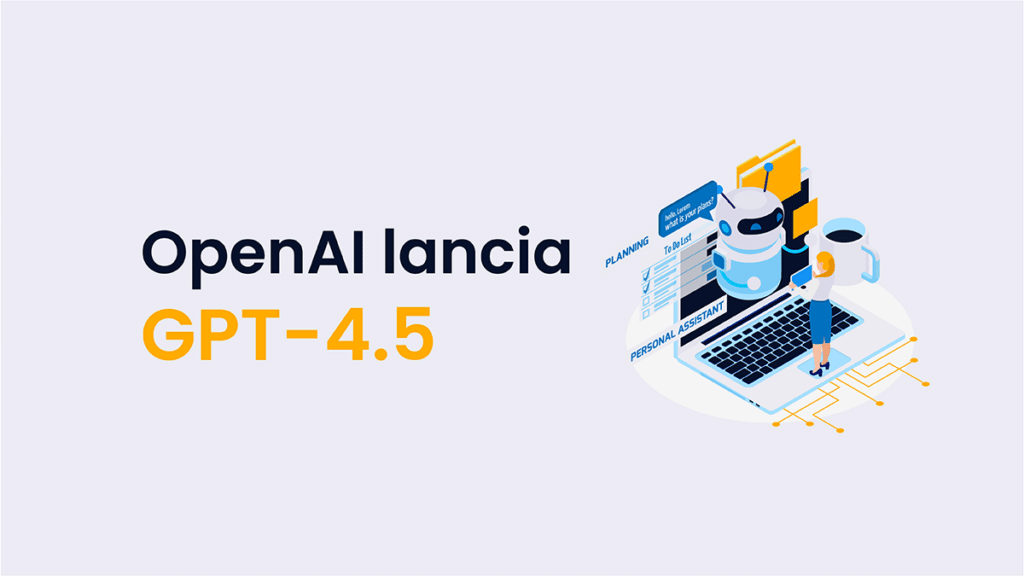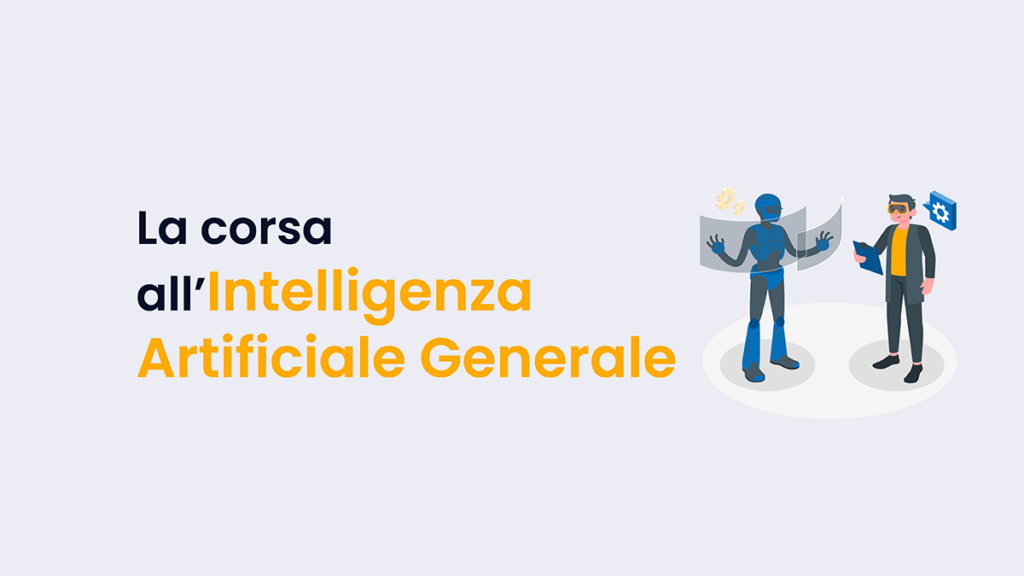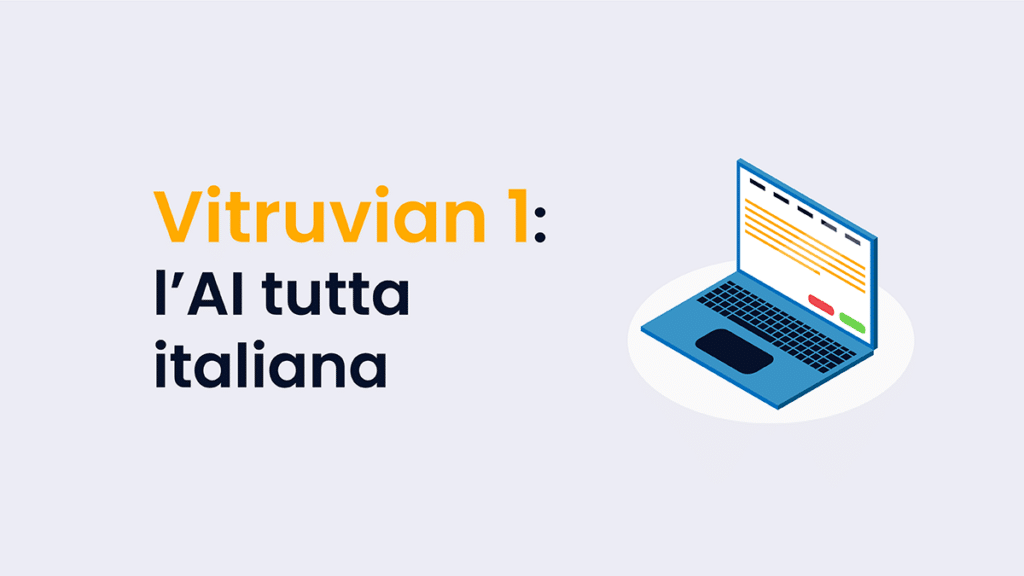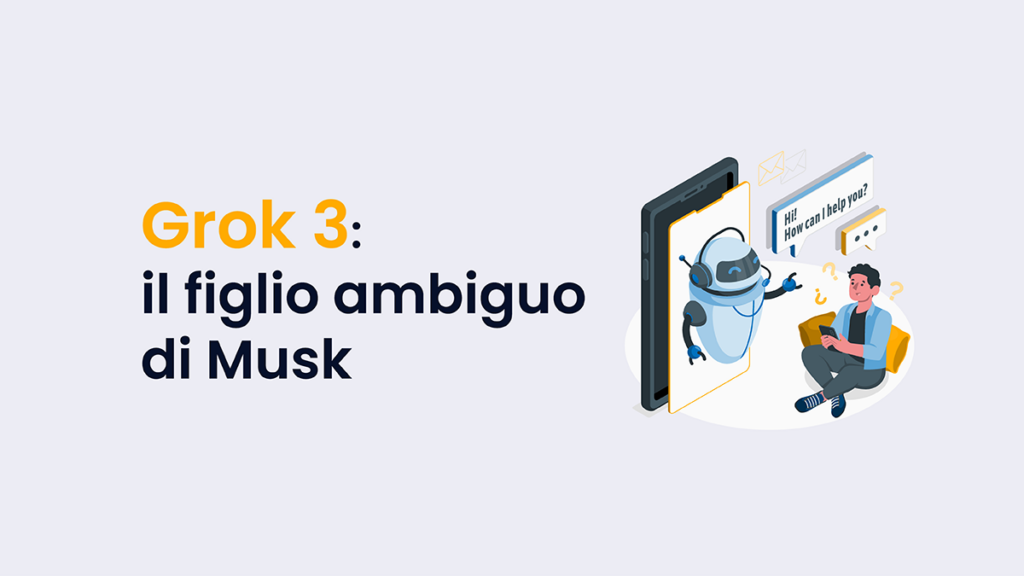Continuiamo la nostra rubrica sull’intelligenza artificiale cercando di rispondere a una domanda delicata: come e quando l’intelligenza artificiale supererà quella umana?
Nell’articolo precedente abbiamo parlato di quale intelligenza artificiale usare e a quali scopi. In quel contesto vi abbiamo già chiarito delle distinzioni. È necessario non generalizzare per avere un’idea ampia e concreta di una tecnologia variegata e dei suoi diversi strumenti.

Anche qui usiamo lo stesso approccio, cercando di darvi informazioni nel modo più obiettivo e specifico che possiamo. La prospettiva dell’intelligenza artificiale che supera quella umana, e di una sfida tra le due, infatti può sembrare allarmante. Ma la questione è più complessa di così.
Indice dei contenuti
Che cos’è l’intelligenza?
Non ci siamo persi la parola “artificiale” nella domanda. Per capire di che cosa stiamo parlando dobbiamo individuare che cosa sia l’intelligenza, così da avere chiaro qual è il “campo di sfida” tra umano e IA.
Secondo la definizione della Treccani, che citiamo testualmente, l’intelligenza sarebbe: “Complesso di facoltà psichiche e mentali che consentono all’uomo di pensare, comprendere o spiegare i fatti o le azioni, elaborare modelli astratti della realtà, intendere e farsi intendere dagli altri, giudicare, e lo rendono insieme capace di adattarsi a situazioni nuove e di modificare la situazione stessa quando questa presenta ostacoli all’adattamento; propria dell’uomo, in cui si sviluppa gradualmente a partire dall’infanzia e in cui è accompagnata dalla consapevolezza e dall’autoconsapevolezza.”
Quindi già qui possiamo raccogliere gli elementi evidenziati in grassetto e aggiungere altre informazioni.
I diversi tipi di intelligenza
Ci sono diverse teorie, tutti criticate e attualmente dibattute, che cercano di classificare i diversi tipi di intelligenza. Qui vi proponiamo la teoria delle intelligenze multiple dello psicologo Gardner elaborata nell’1983. Inizialmente ce n’erano 7 e oggi si è arrivati a 12:
- Logico-matematica,
- Linguistica,
- Spaziale,
- Corporeo-cinestetica,
- Musicale,
- Interpersonale,
- Intrapersonale,
- Naturalistica,
- Emotiva,
- Esistenziale,
- Creativa,
- Collaborativa.
Come vi abbiamo già detto, non tutte e non per tutti queste tipologie di intelligenza sono considerate valide. In ogni caso ve le abbiamo proposte perché riguardano talenti e capacità strettamente legate all’intelligenza, al di là di definizioni accademiche.
Questo elenco è indicativo per comprendere che è riduttivo paragonare l’IA all’intelligenza umana in senso generale.
Tipologie di intelligenza artificiale
Ancora, per non essere riduttivi, vi segnaliamo che ci sono due distinzioni da prendere in considerazione per definire l’intelligenza artificiale. All’interno di queste due, poi si vanno a inquadrare i diversi strumenti che conosciamo e che verranno.
IA debole
L’intelligenza artificiale debole si basa su sistemi che possano agire con successo in alcune funzioni specifiche, come traduzioni ed elaborazione di testi, di immagini, di video e di suoni.
Praticamente simula un cervello pensante, ma solo da un punto di vista funzionale.
Quindi non si astrae da compiti di elaborazione razionale andando a farsi domande che portino all’autoconsapevolezza.
In sostanza non può essere autonoma dall’uomo per una questione strumentale.

IA forte
L’IA forte intanto è teorica, quindi non è stata ancora realizzata, ma ci si sta lavorando.
Le caratteristiche a cui si punta sono apprendimento autonomo, ragionamento, comprensione del contesto, creatività, giudizio e adattamento.
Quindi quando si parla di sfida tra IA e Umano in senso allarmante, l’IA forte è quella da tenere in considerazione. E, ripetiamo, ancora non esiste.
I rischi dell’intelligenza artificiale
Nel 2015 Stephen Hawking mise in guardia l’umanità e la comunità scientifica verso i rischi dello sviluppo dell’intelligenza artificiale forte. Così coinvolse altre 1000 persone tra imprenditori, scienziati e programmatori influenti nella firma e nella pubblicazione di un memorandum che paragona l’IA forte alla “nuova bomba nucleare”. Quindi a una catastrofe evitabile. All’utilizzo scriteriato di una tecnologia che esce fuori dal controllo umano.

Oggi piuttosto le paure più sentite sono verso l’IA debole, perché è già disponibile a tutti. I software di elaborazione testuale e audiovisiva potrebbero far sparire alcune professioni tecniche e artistiche o rivoluzionarne la natura stessa. L’automazione di processi agricoli, industriali e manifatturieri andrebbe a togliere milioni e milioni di posti di lavoro, creando conseguenze sociali ed economiche disastrose.
Ma c’è dell’altro.
Oggi puoi andare al supermercato a comprare di tutto, quindi non è necessario per tutti saper coltivare la terra, allevare un animale, cacciare, o piantare e sapersi curare di un albero da frutto. Dunque tantissimi tra noi non ne sono minimante in grado.
Allo stesso modo, se deleghiamo troppo alle intelligenze artificiali la risoluzione di problemi logici o l’elaborazione di informazioni trovate in giro, rischiamo di ritrovarci a non avere bisogno di ragionare.
Quindi a indebolire alcune nostre capacità cognitive.
Il problema dei dati
Spesso si ha un’idea dell’intelligenza artificiale legata soltanto al prodotto. Quindi a come si manifesta, ai risultati che dà e alle funzioni che svolge. Ed è in base a questi fattori che allora l’intelligenza artificiale si definisce, entra nel nostro immaginario e dà luogo a teorie disastrose.
Quello che non si considera però è che l’intelligenza artificiale si sviluppa e apprende in base ai dati che le vengono forniti. Quindi grazie ai sistemi di machine learning. Al di là del fatto che esistono diversi sistemi di machine learning, ci basta riflettere sui dati, perché sono questi che ci fanno capire come un’intelligenza artificiale elabora e perché.
Non sapere la provenienza di questi dati espone a rischi di inesattezza o distorsione volontaria delle informazioni, violazioni di copyright, abusi governativi… ma questi non sono già problemi che si hanno con gli attuali e precedenti media da minimo un secolo?
Perciò ci sentiamo di dire che, più che deprecare o spaventarsi di uno strumento, bisogna preoccuparsi di chi lo utilizza e come.
E con questa affermazione non crediamo di tradire l’obiettività promessa all’inizio.
In che campi l’intelligenza artificiale ha superato quella umana?
Ora vi mostriamo quali sono i campi della conoscenza o di abilità in cui intelligenze artificiali deboli riescono a superare alcune capacità umane.

- Gioco degli scacchi e del go: il go (foto sopra) è un gioco cinese che ha più di 2500 anni e ha più combinazioni del numero di atomi presenti nell’universo osservabile.
- Trascrizione, elaborazione e traduzione testi: in termini di velocità e di quantità di fonti a cui può attingere l’IA per svolgere queste funzioni.
- Diagnostica medica: relativamente alla correlazione tra i dati che gli vengono forniti e in alcuni casi di malattie specifiche, come la degenerazione maculare, che diagnostica con una percentuale di esattezza del 94%.
- Automazione e manutenzione industriale.
Conclusioni su come e quando l’intelligenza artificiale supererà quella umana
Con quello che avete letto speriamo di aver scongiurato polarizzazioni riduttive o l’idea di catastrofici countdown.
Certamente ci sono rischi associati allo sviluppo di alcune intelligenze artificiali, sia deboli che forti, all’utilizzo dei dati, così come è concreta la minaccia verso alcune occupazioni. Ma le domande che forse dovremmo porci non riguardano quando l’intelligenza artificiale supererà quella umana, ma: come funzionano i diversi tipi di intelligenza artificiale? Come imparano a svolgere le loro funzioni? Da dove vengono i dati che vengono loro forniti?
Chi sono coloro che si occupano di sviluppare le intelligenze artificiali? Che obiettivi hanno? Che valori hanno? Come sono inquadrati negli equilibri geopolitici?
Come vengono distribuite le intelligenze artificiali e perché?
Capiamo che sono domande complesse da fare e alle quali è complesso rispondere, ma è anche vero che bisogna raffinarsi prima di pretendere di giudicare, utilizzare e comprendere mezzi raffinati.
È troppo più facile criticare, avere paura e immaginare catastrofi. Non siamo in un film dove le distinzioni tra bene e male sono nette.
La realtà in cui viviamo oggi è ben più sfumata.
E la missione a cui è chiamato ogni essere umano per essere cosciente del mondo in cui vive è riuscire a rapportarsi con la sua complessità.


